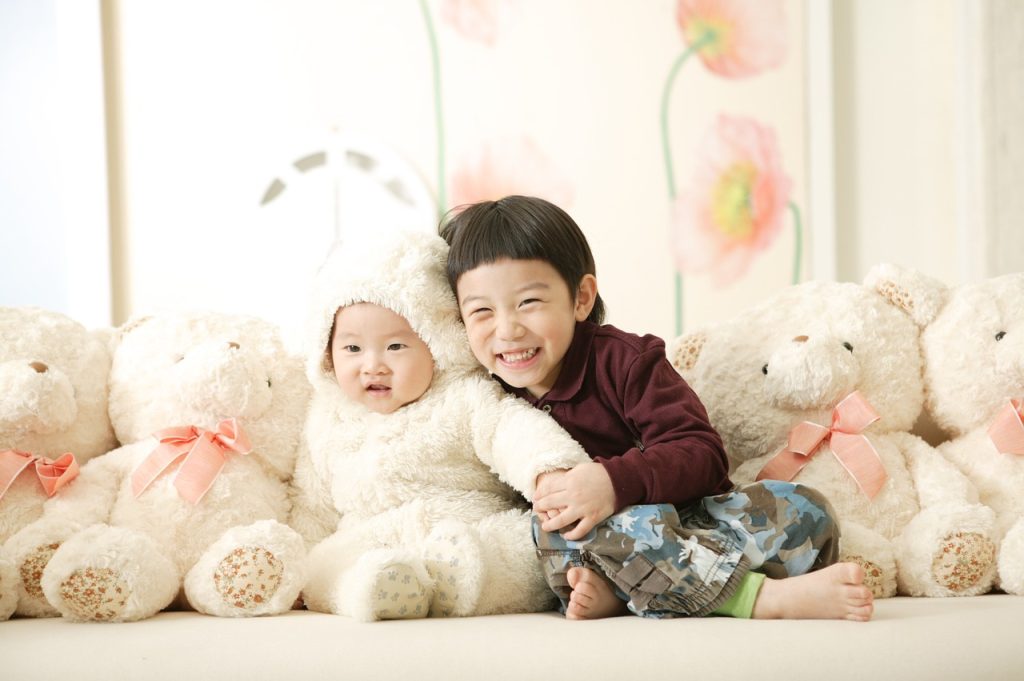Preparing a child for a new sibling: How to go about Preparing Older Sibling for new Baby?

Welcoming a new baby into the family is a joyous occasion, but Preparing a child for a new sibling can also be a significant adjustment for your older child. The arrival of a new sibling often brings mixed emotions, including excitement, curiosity, and sometimes jealousy or anxiety. Preparing your child for this major life change is crucial to ensure a smooth transition and to help them feel secure and included. This article will provide practical steps and tips for parents to prepare a child for a new sibling, fostering a loving and supportive relationship between siblings from the very start.
Problems when introducing a new Sibling into the Home
Jealousy and Competition
One of the most common issues is jealousy. The older child may feel that the new baby is receiving all the attention and love that used to be theirs. This can lead to feelings of resentment and competition for parental affection This is destructive especially if you as the parent were to actually give all your attention to the newborn. The problem is that both children are still children and need help dealing with the age related troubles and concerns they both have. Your older child isn’t yet an adult and still needs attention and help finding their way in the world It’s important to acknowledge these feelings and reassure the older child of their unique and irreplaceable role in the family.
Disruption of Routine
The addition of a new baby often disrupts the household routine, which can be unsettling for the older child. Changes in sleeping arrangements, feeding schedules, and daily activities can make the older child feel displaced or confused this is bad as it can lead to less sleep and even potentially missing meals which can result in things like a lowered immune system and stunted growth. Maintaining as much of their normal routine as possible can help provide a sense of stability and security.
How to Fix These Problems
Bringing a new sibling into the family can be a challenging transition for all children. However, with thoughtful planning and communication, parents can mitigate potential issues and ensure a smoother adjustment for everyone involved. Here are some strategies to help improve the process:
Prepare Your Child Early
Talk About the Baby: Start discussing the new baby early on, allowing your child to express their feelings and ask questions. This helps them feel involved and prepares them for the changes ahead. Your child will should understand that having a child is a lot of work and even if you begin to show them less attention it isn’t because you as a parent don’t love them but because you love them and you want to give them a sibling.
Involve Them in Preparations: Let your child help with setting up the baby’s nursery, choosing clothes, or picking out toys. This fosters a sense of inclusion and excitement. With feeling included in the preparations the child will begin to foster a sense of responsibility which will make them care about their little sibling and desire to protect them further.
Provide Individual Attention
Schedule One-on-One Time: Make time for individual activities with your older child to ensure they don’t feel neglected. Special outings or regular routines can reinforce their sense of importance. Both children need time and attention even if you think the baby requires more it’s important to remember that both kids are vulnerable and need nurturing.
Maintain Routines: Try to keep your child’s daily routine as consistent as possible to provide a sense of stability during the transition. Make sure to schedule as best you can and balance your time between the children although if the newborn does need extra attention don’t feel bad about giving them the necessary attention, Just try to be as balanced as possible.
Encourage Positive Interaction
Promote Bonding: Encourage your child to interact with the baby in positive ways, such as helping with feedings or playing gentle games. Praise and reinforce these interactions to build a strong sibling bond. Its important to nurture the bond between your children as it can help develop a sense of purpose and responsibility as well as create lifelong siblinghood which will benefit both siblings in their adult lives. To have a sibling and be a stranger is a sad reality that many people go through.
Model Positive Behavior: Demonstrate and encourage gentle and caring behavior towards the baby. Children often mimic their parents’ actions and attitudes. This is an effective way in the short term to help your children develop responsible habits that will benefit the family.
Addressing Middle Child Syndrome
The Joke about the middle child being invisible is to some extent overexaggerated although there is in fact some truth to the meme. If you are planning to have three children it will be difficult to give attention to all of them equally and unfortunately, the middle child is usually not prioritized or relied on like the youngest and oldest children. The Youngest children are usually given the most attention due to being seen as the babies of the family due to this the parents are going to be more forgiving to them than both the oldest and the middle child and are to a certain extent in some family’s even a little spoilt by parents, unlike the youngest child the oldest isn’t given special treatment although usually parents place expectations and pride upon their oldest child which makes them the superhero of the family, unlike the youngest the middle child isn’t protected by the parents and unlike the oldest child the parents aren’t pushing them to achieve, they are in this middle ground of invisibility
Ways to Prevent Middle Child Syndrome
Middle child syndrome is a product of parents introducing another Sibling after already introducing a sibling to the family, The already difficult task of balancing work with giving attention to and raising a child is tripled making for an impossible task to do perfectly. There is a way to reduce the effects of the middle child syndrome.
The only way to solve this problem is to see your children as individuals instead of roles they play within the family, The major reason that the Middle child Syndrome comes about is due to parental stereotyping beyond childhood is effectively not seeing your children as equals and instead placing them in a sort of hierarchy.
Parents who do this don’t see their children as individuals who all deal with their own individual Problems and have their own individual stories. The greatest power humans have is the ability to grow and change most of the time positively yet sometimes negatively meaning that the youngest child has the potential to grow in maturity and the oldest child to also become less mature. The Middle child has the potential to do both.
It is important to understand how the introduction of one or multiple siblings can change or affect a household, this can change the dynamics of the household as well as warp the perception of parents and children alike which can lead to an unproductive and unhealthy environment to raise kids. If you are looking to have another child take these problems into account and make it imperative to not choose favorites as both kids are your kids and you owe a responsibility to them. Click here to read more articles by us at Toytazia.




